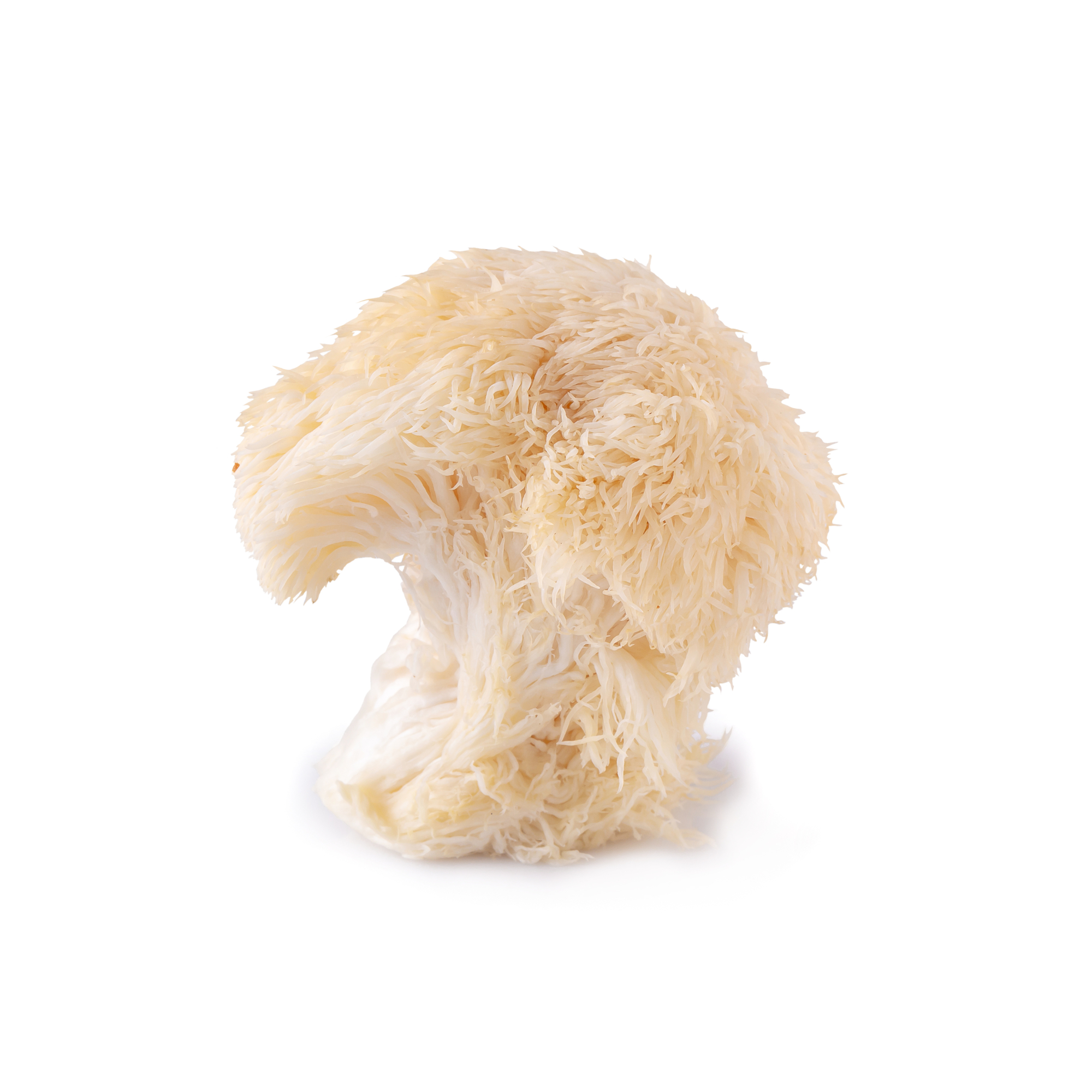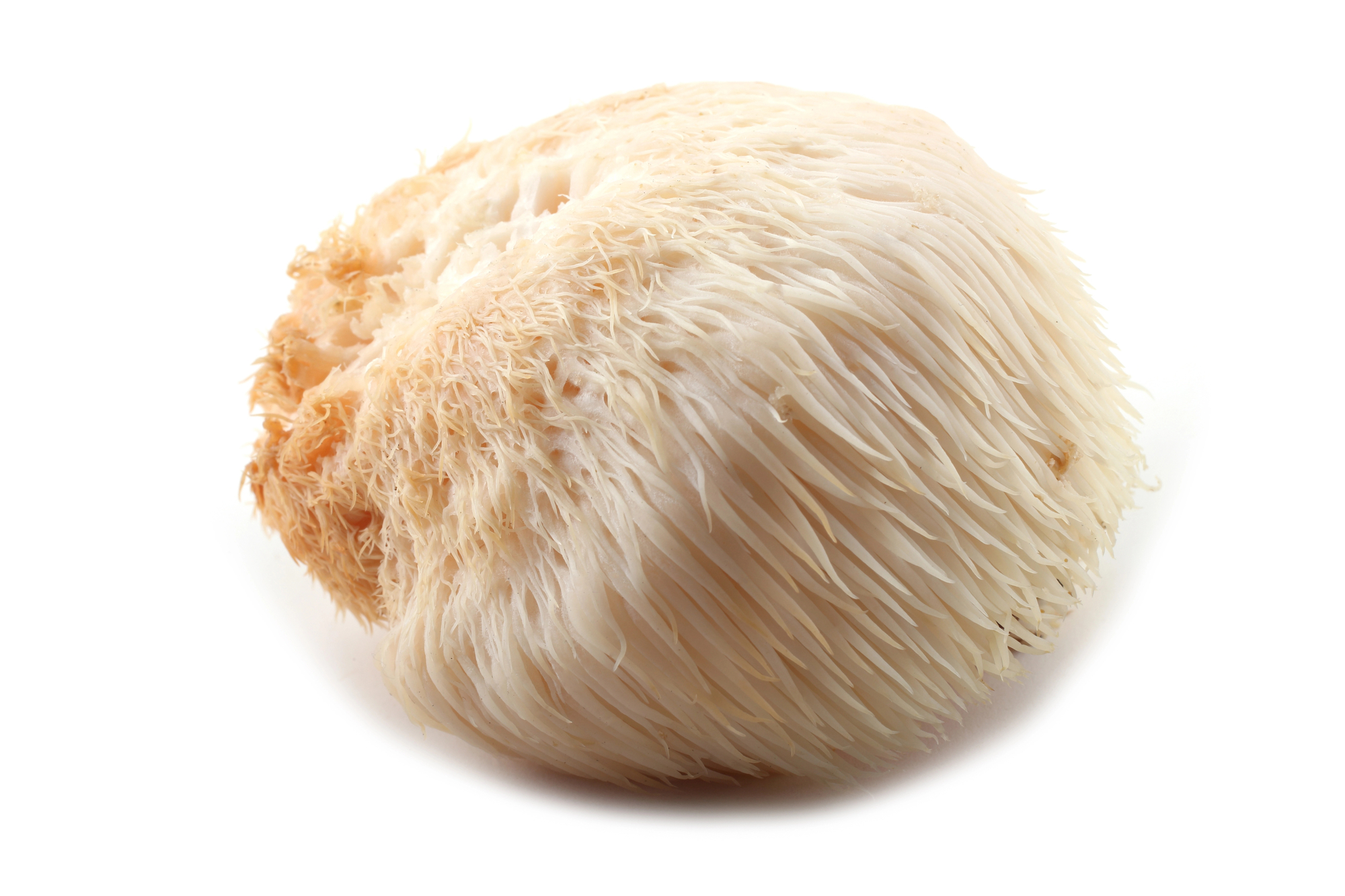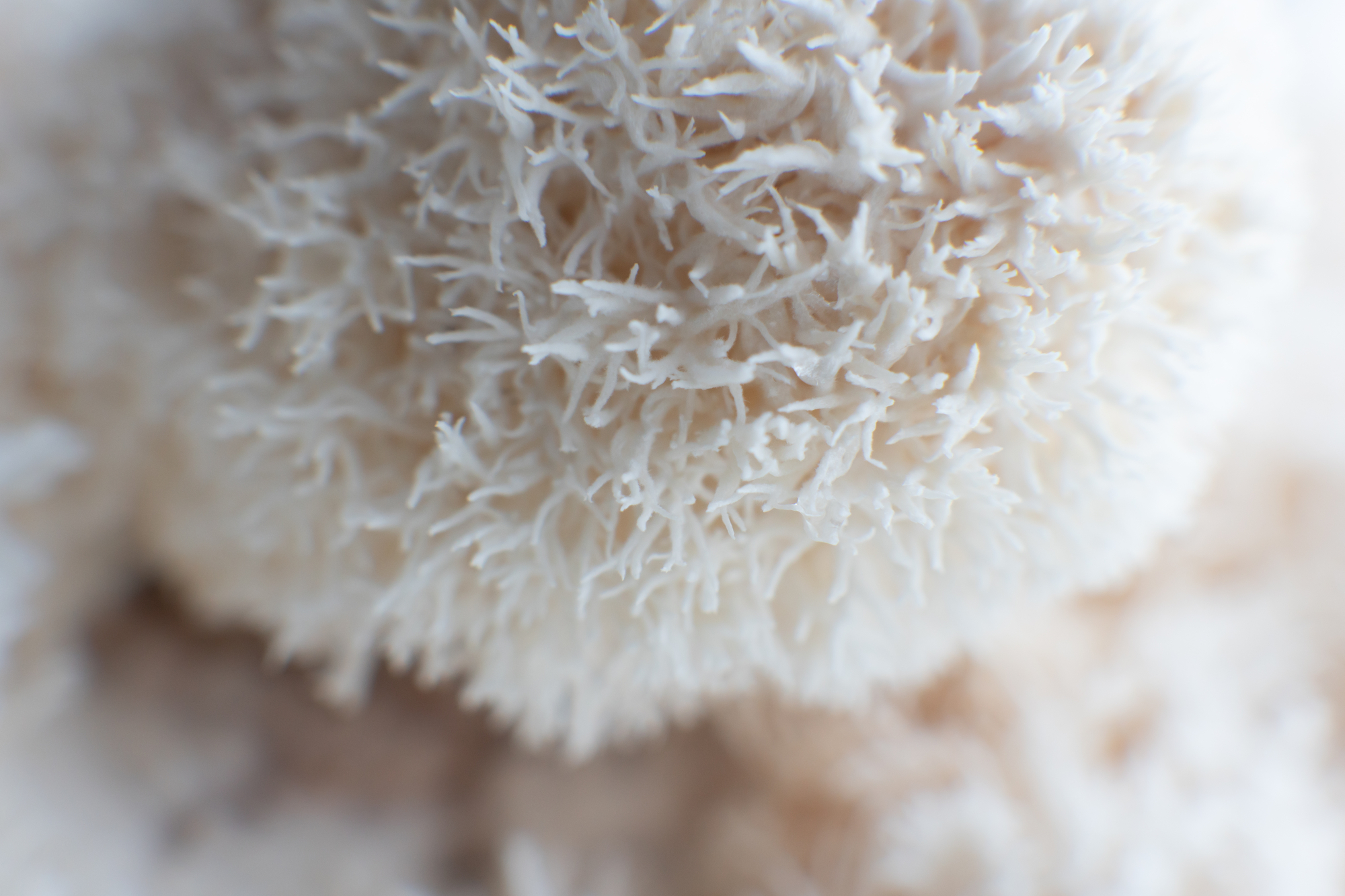

The Benefits of Lion’s Mane Mushrooms: Prioritize Your Health and Mental Focus
Reflecting on life after these last few years, it is easy to see why people are exhausted and overwhelmed by everything happening in the world. Revisiting our priorities has been a significant theme, as feeling connected to the most meaningful things offers respite and hope.
Protecting our own and our loved ones' health is a top priority for many of us, regardless of how much time or resources we can put into that. Sometimes, this may look like trying a holistic alternative to relieve stress or chronic pain to avoid the cascade effects of pharmaceuticals and find relief quickly.
Lion’s mane mushroom presents an incredible opportunity to support the immune and nervous system and help with mild cognitive impairment. In this article, we will cover the many benefits of lion’s mane mushrooms and how you can prepare, dose, and enjoy this non-psychoactive mushroom and boost your health and well-being.

Emerging from the natural world
Medicinal mushroom Hericium erinaceus, also known as lion’s mane mushroom or bearded tooth fungus, is an edible mushroom classified as a tooth fungus. It grows on wood logs or stumps in the wild northern hemisphere. It grows in humid, temperate climates and can withstand cold temperatures and even frost conditions.
Lion’s mane grows most abundantly in Asia but was studied and identified in North America. Today, most of the cultivation of this mushroom is done using indoor production facilities, accounting for thousands of pounds of mushrooms each year.
Interestingly, the lion’s mane is native to Europe but has been red-listed as endangered in 13 European countries due to poor germination and growth characteristics. Despite these ecological concerns, lion’s mane mushrooms have gained recent popularity as a health mushroom supplement, building hope for this fluffy mushroom species.
Keeping lion’s mane alive and thriving

Though it is illegal in some parts of the world to forage or sell lion’s mane, you can honor this amazing fungus’ legacy and buy your medicinal mushrooms from reputable farms or even grow them at home.
Mycologists and farmers in China first started the artificial cultivation of lion’s mane back in 1988. Since then, many new techniques have emerged in mushroom farming. This is still a tedious and somewhat slow process for lion’s mane, often yielding much less fruit than other varieties of mushrooms. Though it is a more challenging mushroom to grow, you can find expertly cultivated lion’s mane in health stores and online retailers and enjoy the amazing benefits of this mushroom yourself.
The benefits of lion's mane mushrooms

The possible health benefits include:
Protects against dementia
Lion’s mane mushrooms contain two neuroprotective compounds: hericenones and erinacines. These two compounds support the brain health in developing new brain cells, something that has incredible therapeutic potential for conditions like mild alzheimer's disease and Parkinson’s diseases.
Relieves symptoms of depression
We are in the early phases of understanding lion’s mane and its effects on mood and nervous system balance, but evidence surfacing supports this possibility. In a case examining depression during menopause, it was observed that lion’s mane mushroom extract was able to reduce sleep-related issues due to depression after 8 weeks of daily use.
Speeds nerve cell recovery
Nerve cell regeneration is an incredibly important process that is affected by our health and can decline over time. Lion’s mane mushrooms have active compounds that may help promote faster nerve cell recovery after injury. There are very few fungi or plants that have this medicinal quality, making it quite novel to lion’s mane and a few other varieties. Some research suggests that extracts of lion's mane mushrooms may act as a nerve growth factor and repair more quickly.
Protects against ulcers
When reflecting on Chinese traditional medicine techniques, lion’s mane has been used to treat digestive diseases for centuries. When certain bacteria species overgrow in our stomachs, we can get chronic and painful ulcers. Lion’s mane extract can treat ulcers while also protecting your stomach lining and healthy biome.
Supports immune function
In the same way that lion’s mane mushroom can support your gut health, this function plays a key role in maintaining a strong immune system. It works by stimulating the intestines' immune system, which balances bacteria living in the gut. These healthy bacterias are one of our primary defenses against pathogens that enter the body. There are also a number of compounds found in lion’s mane that promote immunity, like antioxidants.
Preparing and Using lion's mane
Before starting any new supplement, it is good practice to check in with your doctor to confirm you aren’t at risk for any adverse effects. When dosing with lion’s mane mushroom for cognitive benefits, people have seen effective results when taking 500 mg daily with food.
You can further enhance these effects with other beneficial ingredients. Blending lion’s mane with reishi mushrooms and L-Theanine provides a potent and soothing natural elixir to benefit your cognitive function, manage stress or other major depressive disorder, brain function, and support immunity.
However, overdoing it on adaptogens can often lead to more intense burnout. Utilizing these supplements while practicing other harmful or depressive behaviors towards your health may overwork your nervous system.
A well-balanced diet, regular exercise, hydration, and sleep will be more pivotal in how effective these supplements are when you take them. Adaptogens are better suited for recovery and restoring vitality in the body, rather than as a performance-enhancing drug. Avoid the mistakes of burnout culture and utilize these mushrooms therapeutically by building a more holistic approach to wellness.
You can consume lion’s mane in a few ways, depending on your personal preferences.
Cooked Whole Mushroom
In some regions, you may find fresh or dehydrated lion’s mane. These can be easily prepared like any other edible mushroom and have a distinctly savory and umami flavor that many people love! But don’t worry if you don’t have a taste for mushrooms. There are many other ways to prepare a lion’s mane.
Teas & Emulsions
There are many over-the-counter options for loose leaf, powder, or tea bag products that you can steep and enjoy instantly. Some products combine coffee for added energy, while others advertise as an alternative to coffee in the morning. Depending on your unique taste, many different flavors and targeted effects exist to explore.
Capsules
Great for enhancing your focus, lion’s mane mushroom capsules offer a long-lasting alternative to teas. Due to the rate a capsule breaks down in the body, they tend to take effect slower but have a significantly longer duration of effects. Perhaps you are not a fan of teas or herbal flavors but want to experience the benefits of all these natural compounds. Capsules are your best option!
Powder
A classic way to dose lion’s mane, powders are a perfect addition to smoothies or juices. These water-soluble blends are designed for an easy and smooth delivery of these beneficial ingredients.
Tinctures
Tinctures derived from alcohol or glycerin offer a potent and easy-to-dose option for taking lion’s mane daily. Each bottle contains a highly concentrated extract of the active constituents in lion's mane mushrooms. Simply dose with a dropper full under your tongue or into 1 oz of water (based on product directions).
How do lion's mane mushrooms make you feel?

Though lion’s mane does not induce any sort of psycho-active effects like some medicinal plants might, it does have some noticeable impact on the mind.
It has the potential to increase focus and mental clarity and is associated with reducing some symptoms of depression. There is still much to learn about the pharmacology and neuroscience behind beneficial mushrooms to determine their full effects.
Possible side effects

Overall, lion’s mane is a very safe and well-tolerated supplement and does not come with any risky side effects. Despite the many promises of this fungus, there is still much to learn about its medical efficacy, especially when considering long-term effects.
Allergic reactions tend to be the most dangerous side effects related to lion’s mane mushrooms. In rare cases, symptoms like skin rash or throat swelling can occur. If you have a known allergy to mushrooms, it is also best to avoid lion’s mane varieties.
Additionally, lion’s mane mushrooms may slow blood clotting and adjust lower blood sugar levels. This could present risks for individuals on diabetes medications or blood thinners, as the mushrooms may interact with anticoagulants and antiplatelet drugs.
Promising future for preventative care
Beyond the health benefits for daily wellness and mental clarity, lion’s mane mushrooms may offer even more inspiring medicinal potential. Scientists are now embarking on new research to uncover how lion’s mane may actually protect against some of the most devastating diseases.
We are now learning that lion’s mane could be a solution for symptom management and preventative care for some illnesses like heart disease, diabetes, cancer, and other neurodegenerative diseases.
Its anti-inflammatory action and ability to reduce oxidative stress offer promise in protecting the mind and body. This incredible fungus offers us a new avenue to achieve the quality of life we all deserve.
Frequently Asked Questions
What is the downside of Lion's Mane?
Lions mane can be tolerated well, but gastrointestinal pain is the most frequently reported side effect. If you feel pain or discomfort, avoid drinking alcohol until you speak to a doctor.
Is lion's mane considered a drug?
No Lion's Mane does not contain alcohol or any other addictive substance. Lions Mane is a medicinal mushroom used to promote health and dietary stability for thousands of years. As with most supplements, it's important to speak with a health professional if you are undergoing any treatment or have a serious illness or other medical condition.
Is it OK to eat lion's mane mushrooms?
Animal studies show that lion mane mushrooms are safe in high dosages and in very low doses. Several allergic reactions were found in the human body, causing people to suffer from known mushroom allergic reactions.
Can I take Lion's Mane mushroom every day?
Yes, you can take Lion's Mane mushrooms daily as part of a routine supplement regimen. Still, it's important to follow the recommended dosage and consult a healthcare provider to ensure it's appropriate.
What does lion's mane mushroom do for you?
The manes of Lions contain substances that may stimulate nerve development. Studies suggest the mane may increase mental and physical activity in lions. Drugs can also help prevent dementia. Nevertheless, further research must be done.











Leave a comment